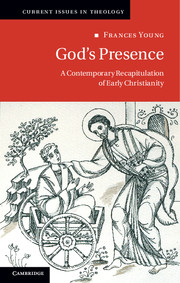Book contents
- Frontmatter
- Contents
- Preface
- Acknowledgements
- Abbreviations
- Introduction
- 1 From pondering scripture to the first principles of Christian theology
- 2 From cosmology to doxology: reading Genesis alongside Plato and Darwin
- 3 From creation to re-creation: nature and the naked ape
- 4 From image to likeness: incarnation and theōsis
- 5 From Adam and Eve to Mary and Christ: sin, redemption, atonement
- 6 From inspiration to sanctification: discerning the work of the Holy Spirit
- 7 From the church to Mary: towards a critical ecumenism
- 8 From dogma to theōria: the Christian God
- Epilogue
- Bibliography
- Index
- References
5 - From Adam and Eve to Mary and Christ: sin, redemption, atonement
Published online by Cambridge University Press: 05 June 2014
- Frontmatter
- Contents
- Preface
- Acknowledgements
- Abbreviations
- Introduction
- 1 From pondering scripture to the first principles of Christian theology
- 2 From cosmology to doxology: reading Genesis alongside Plato and Darwin
- 3 From creation to re-creation: nature and the naked ape
- 4 From image to likeness: incarnation and theōsis
- 5 From Adam and Eve to Mary and Christ: sin, redemption, atonement
- 6 From inspiration to sanctification: discerning the work of the Holy Spirit
- 7 From the church to Mary: towards a critical ecumenism
- 8 From dogma to theōria: the Christian God
- Epilogue
- Bibliography
- Index
- References
Summary
Prelude
The historian documents the atrocities of the twentieth century; the concert audience inwardly echoes the screaming sounds and relentless rhythms of Shostakovich's ‘dark epic’, his Eighth Symphony, as it ‘continues to ring out as the voice of an individual sensibility speaking for the millions whose lives have been shattered by totalitarianism, militarism and cruelty’.
The abused child is damaged for life. The battered wife, the abandoned husband, each refuses to forgive, while jealous siblings engage in malicious bullying.
The businessman fiddles the books; the financier avoids tax. The official indulges in petty tyranny, and the yob bullies the vulnerable.
The poor are always with us: lack of opportunity, bad luck, exploitation, slavery, the legacies of colonialism or people-trafficking.
The Psalmist asks, ‘Why do the wicked prosper?’ and the student tentatively enquires whether Job was blaspheming.
The evangelist thunders out the Gospel: Christ died for our sins, paid the penalty on our behalf, made the ultimate sacrifice for us and our salvation; some respond to the altar call, tears streaming, and commit themselves to Christ as their personal Lord and Saviour.
The Catholic faithful quietly queue to venerate the cross as the recorded voice of Paul Robeson sings, ‘Were you there when they crucified my Lord?’
- Type
- Chapter
- Information
- God's PresenceA Contemporary Recapitulation of Early Christianity, pp. 202 - 259Publisher: Cambridge University PressPrint publication year: 2013

